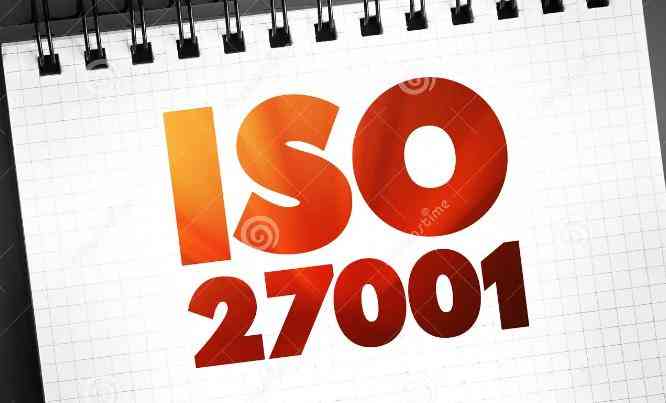|
SLOVENSKI STANDARD
01-april-2023
Železniške naprave - Zavore - Zavorni sistemi za mestno železnico - 1. del: Zahteve
in definicije
Railway applications - Braking - Urban rail brake systems - Part 1: Requirements and
definitions
Bahnanwendungen - Bremsen - Bremssysteme städtischer Schienenbahnen - Teil 1:
Anforderungen und Definitionen
Applications ferroviaires - Freinage - Systèmes de freinage des transports publics
urbains et suburbains - Partie 1: Exigences de performances
Ta slovenski standard je istoveten z: prEN 13452-1
ICS:
45.040 Materiali in deli za železniško Materials and components
tehniko for railway engineering
45.140 Oprema za podzemne vlake, Metro, tram and light rail
tramvaje in lahka tirna vozila equipment
2003-01.Slovenski inštitut za standardizacijo. Razmnoževanje celote ali delov tega standarda ni dovoljeno.
DRAFT
EUROPEAN STANDARD
NORME EUROPÉENNE
EUROPÄISCHE NORM
February 2023
ICS Will supersede EN 13452-1:2003
English Version
Railway applications - Braking - Urban rail brake systems -
Part 1: Requirements and definitions
Applications ferroviaires - Freinage - Systèmes de Bahnanwendungen - Bremsen - Bremssysteme des
freinage des transports publics urbains et suburbains - öffentlichen Nahverkehrs - Teil 1: Anforderungen an
Partie 1: Exigences de performances das Leistungsvermögen
This draft European Standard is submitted to CEN members for enquiry. It has been drawn up by the Technical Committee
CEN/TC 256.
If this draft becomes a European Standard, CEN members are bound to comply with the CEN/CENELEC Internal Regulations
which stipulate the conditions for giving this European Standard the status of a national standard without any alteration.
This draft European Standard was established by CEN in three official versions (English, French, German). A version in any other
language made by translation under the responsibility of a CEN member into its own language and notified to the CEN-CENELEC
Management Centre has the same status as the official versions.
CEN members are the national standards bodies of Austria, Belgium, Bulgaria, Croatia, Cyprus, Czech Republic, Denmark, Estonia,
Finland, France, Germany, Greece, Hungary, Iceland, Ireland, Italy, Latvia, Lithuania, Luxembourg, Malta, Netherlands, Norway,
Poland, Portugal, Republic of North Macedonia, Romania, Serbia, Slovakia, Slovenia, Spain, Sweden, Switzerland, Türkiye and
United Kingdom.
Recipients of this draft are invited to submit, with their comments, notification of any relevant patent rights of which they are
aware and to provide supporting documentation.
Warning : This document is not a European Standard. It is distributed for review and comments. It is subject to change without
notice and shall not be referred to as a European Standard.
EUROPEAN COMMITTEE FOR STANDARDIZATION
COMITÉ EUROPÉEN DE NORMALISATION
EUROPÄISCHES KOMITEE FÜR NORMUNG
CEN-CENELEC Management Centre: Rue de la Science 23, B-1040 Brussels
© 2023 CEN All rights of exploitation in any form and by any means reserved Ref. No. prEN 13452-1:2023 E
worldwide for CEN national Members.
Contents Page
European foreword . 4
Introduction . 5
1 Scope . 6
2 Normative references . 6
3 Terms and definitions . 7
4 Symbols . 8
5 Design principles . 8
5.1 Brake system . 8
5.1.1 General. 8
5.1.2 Service braking . 9
5.1.3 Emergency braking . 9
5.1.4 Safety braking . 9
5.1.5 Holding brake . 9
5.1.6 Parking brake . 10
5.1.7 Wheelslide protection systems . 10
5.1.8 Sanding systems . 10
5.2 Environmental condition . 10
5.3 Loading criteria . 10
5.4 Braking fundamentals . 11
5.4.1 Available adhesion . 11
5.4.2 Stopping distances . 11
5.4.3 Pay load . 11
5.4.4 Power supply . 11
5.5 Operational requirements . 11
5.5.1 Passenger emergency alarm . 11
5.5.2 Driver vigilance system . 12
5.5.3 Train protection . 12
5.5.4 Coupling/decoupling . 12
5.6 Performance requirements . 12
5.6.1 Equivalent response time . 12
5.6.2 Stopping distance . 12
5.6.3 Operational performance requirements . 13
5.6.4 Comfort performances . 14
5.6.5 Guaranteed performances . 14
5.7 Brake system failure consequences . 14
5.7.1 General. 14
5.7.2 Design principles . 14
5.7.3 Auxiliary and monitoring facilities . 15
5.7.4 Loss of dynamic brake . 15
5.8 Automatic train control . 15
5.9 Brake system structure . 15
5.9.1 General. 15
5.9.2 Train brake control system . 16
5.9.3 Brake application system . 16
5.9.4 Brake components . 16
5.9.5 Monitoring. 16
5.9.6 Brake test. 16
5.9.7 Isolation facilities . 17
6 Requirements for trams and light rail vehicles . 17
6.1 Characteristics for trams and light rail vehicles . 17
6.2 Brake system architecture . 17
6.3 Brake performance values . 18
6.3.1 General . 18
6.3.2 Operational performances . 18
6.4 Comfort performances . 18
6.5 Static performances . 19
6.5.1 Holding brake . 19
6.5.2 Parking brake . 19
6.6 Load levels . 19
6.7 Implementation . 19
7 Requirements for metro vehicles with steel wheels . 20
7.1 Characteristics for metro vehicles with steel wheels . 20
7.2 Brake system architecture . 20
7.3 Brake performance values . 21
7.3.1 General . 21
7.3.2 Operational performances . 21
7.3.3 Comfort performances . 21
7.3.4 Static performances . 22
7.4 Load levels . 22
7.5 Implementation . 23
8 Requirements for metro vehicles with rubber tyred wheels . 23
8.1 Characteristics for metro vehicles with rubber tyred wheels . 23
8.1.1 General . 23
8.1.2 Typical parameters . 23
8.2 Brake system architecture . 24
8.3 Brake performance values .
...














